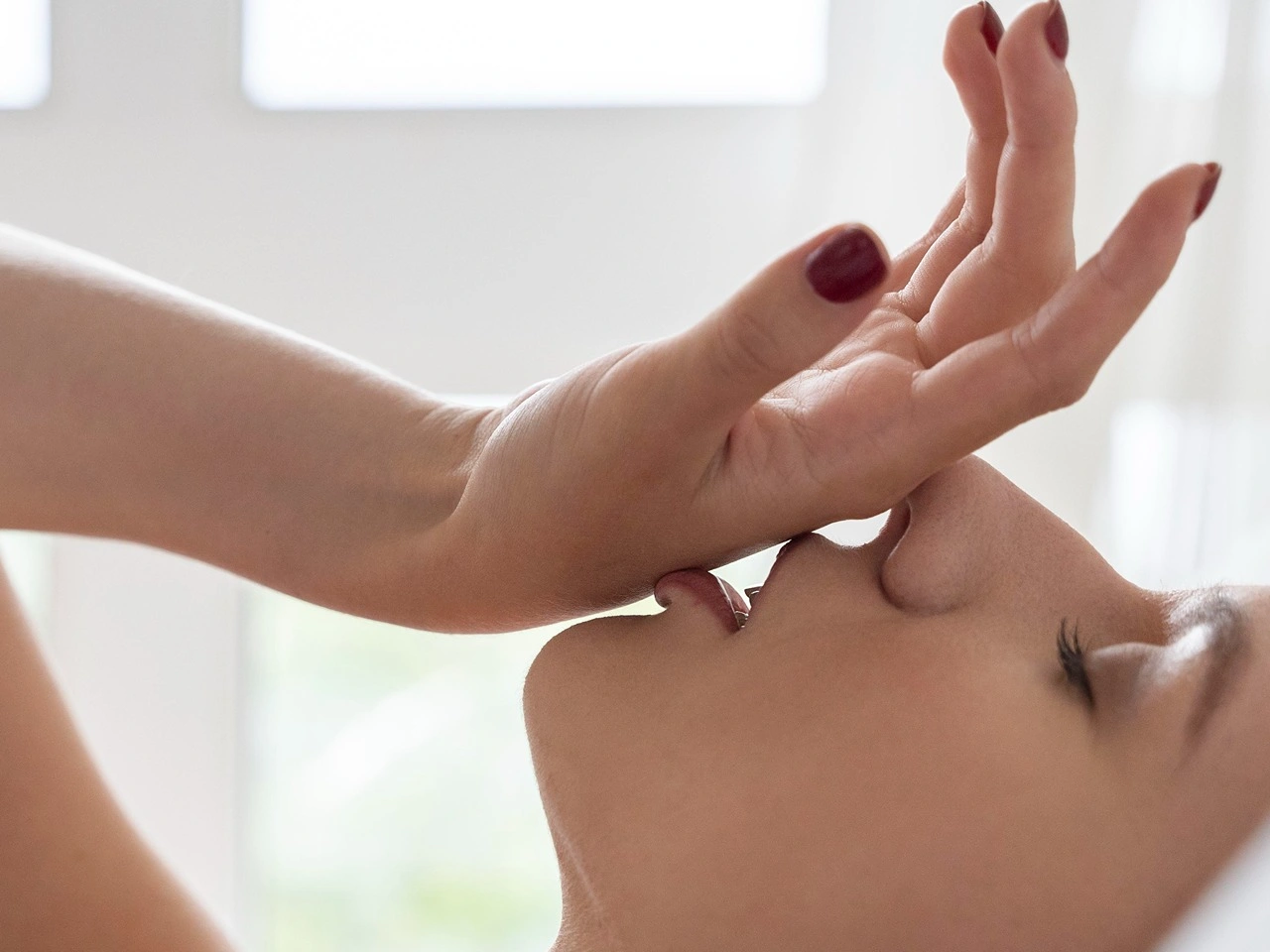
What Is Lust? Understanding the Definition of Lust, Lustful Desire, and Its Impact
What is lust: definition, signs, its impact, and understanding strong sexual desire, how lust differs from love, sexual gratification, and sinful urges.

Ever felt a strong desire for someone that just won’t go away? That’s lust, a kind of sexual attraction or craving that can easily get mixed up with love. Most of us have felt it at some point, whether it’s toward a person, an object, or even just in our own thoughts.
Lust can lead to impure thoughts, sexual arousal, or even acting on desire in ways we later regret. Love and lust can feel similar, but one comes from a genuine, god-given connection while the other is more like an insatiable craving.
Recognizing the signs of lust can be an important step in understanding how it shows up in daily life and relationships. It may appear through sexual thoughts, reliance on pornography, or a strong desire for someone, sometimes leading to guilt or harmful choices like committing adultery. Learning how lust differs from love can bring clarity, and exploring these differences can help make sense of why the two often get confused.
What Is Lust: Definition of Lust and Intense Sexual Desire

Lust is one of the seven deadly sins, and it’s basically that overwhelming desire you feel for a person or object. It’s usually sexual lust, where the focus is on physical desires rather than truly caring about someone in an intimate or long-term relationship.
Key Aspects of Lust
Lust can show up in ways you might not even notice at first. Lust may come through sexual thoughts, cravings, or other forms of indulgence like gluttony or lust for power.
- Intense Desire: Lust is all about that strong craving that’s hard to ignore, especially when it comes to sexual pleasure.
- Sexual Focus: Lust often shows up as a strong attention to someone’s physical appearance or attractiveness, prioritizing immediate gratification over truly connecting with the person.
- Broader Forms of Lust: Lust isn’t just sexual—it can be lusts of the flesh, lust for power, or even idolatry.
- Difference Between Lust and Love: The difference is clear when you look at motivation. Lust is self-focused, while love is a kind of love that wants the best for someone else.
- Moral Impact: Feeling lust within can make you feel guilty of lust, and if unchecked, it can lead to sexual addiction or even the sin of adultery.
Examples of Lust
Lust can take many forms, and knowing what it looks like can help you see it in yourself. Recognizing lust early makes it easier to avoid lust and manage sexual desire.
- Sexual Lust: Obsessing over sexual thoughts or sexual activities, caring more about physical desires than real connection.
- Lust for Power: Trying to control a person or situation just to satisfy your own cravings.
- Gluttonous Lust: Wanting more food, pleasure, or indulgence than you actually need.
Lust may leave you feeling guilty of lust or struggling with immoral thoughts, but noticing it is the first step to freedom from lust. Learning to manage sexual thoughts and desire for sexual pleasure can help you have healthier relationships, fall in love in a meaningful way, and enjoy a long-term relationship without letting lust take over.
Signs of Lust: How to Recognize Intense Desire and Obsessive Thoughts

Lust can feel exciting at first, but it becomes a problem when your thoughts are only about physical desire rather than connecting with a partner. You might experience lust as an intense craving that makes you focus on sexual pleasure instead of building a real, intimate relationship with someone.
Physical and Sexual Focus
Lust often begins with an intense sexual attraction. You might notice yourself looking at someone mainly for their body, treating them as a sexual object instead of seeing the whole person.
Short-Term Desire
Lust usually feels immediate and intense. The desire or craving is about quick sexual satisfaction, not forming a long-term relationship.
Obsessive Thoughts
When lust is strong, your mind can get stuck on a person. These thoughts tend to focus on sexual activities rather than caring for the person's feelings or well-being.
Impulsive Actions
Lust can make you act without thinking. You might find yourself rushing into sexual activities, ignoring how it negatively affects your relationship with your partner.
Self-Centeredness
Lust can make you put your own desires first. Instead of thinking about someone as your partner, your relationship becomes focused on fulfilling your own cravings and desires.
Lack of Emotional Depth
When lust takes over, the connection can feel shallow. Conversations and time together might focus on sexual pleasure rather than building genuine intimacy.
Objectification
Lust can make a man or woman seem like just an object of desire. This is a key sign of the sin of lust, where the person becomes more about satisfying cravings than forming a real bond.
Instant Gratification
Strong sexual desire pushes you toward immediate satisfaction. The craving can make it hard to be patient or think about the bigger picture in your intimate relationship.
How the Power of Lust Manifests as a Strong Desire

Experiencing lust can feel like your desire is controlling your thoughts. It can make you focus on sexual pleasure so much that you forget to see the person as a whole, which can hurt your relationship with someone.
- Heightened Physical Attraction: Lust makes you notice every physical detail of a person. Your desire or craving can make it hard to see them as a complete person.
- Craving and Yearning: Lust creates a strong need to be close to someone physically. The longing can feel overwhelming, like you can’t think about anything else.
- Fantasy: Sexual lust thrives on imagination and idealized versions of a person. You might find yourself thinking about who you want them to be rather than who they really are.
- Desire for Physical Connection: Even when you want closeness, the focus is mostly sexual. Emotional intimacy often takes a back seat to satisfying the craving for sexual activities.
- Impatience and Urgency: Lust can make you act quickly to fulfill desire. Impulsive actions driven by sexual craving can harm an intimate relationship and even lead to feelings of guilt.
- Ignoring Flaws: Strong sexual desire can make a person seem perfect, even when you know they have flaws. Lust blinds you to reality, keeping your focus on immediate gratification.
The Effects of Lust on Daily Life and Relationships

Lust can feel exciting at first, but when it starts taking over your thoughts, it can really affect your daily life and your connection with your partner. Experiencing lust often makes you focus on physical desire instead of real care, and that can leave your relationships and personal happiness at risk.
Effects on Daily Life
Lust doesn’t just show up in relationships—it can sneak into your everyday life too. The desire or craving can cloud your judgment and pull you away from things that truly matter.
Clouded Judgment & Impulsivity
When lust is strong, it’s easy to act without thinking. You might make impulsive choices that satisfy sexual desire but don’t help in the long run.
Emotional Depletion
Lust often tries to fill a personal emptiness, but it rarely works. Instead of feeling satisfied, you can end up feeling drained and empty.
Distraction from Personal Needs
Focusing too much on lust can keep you from taking care of yourself. It can distract you from building a life that supports a healthy, intimate relationship with someone.
Effects on Relationships
Lust can quietly change the way you relate to someone. When the focus is mostly on physical desire, it can make emotional connection and genuine intimacy harder to maintain.
Emotional Disconnection
Lust can create distance in a relationship. The rush of sexual desire usually overshadows genuine emotional closeness with someone you care about.
Lack of Genuine Intimacy
Relationships dominated by lust can feel shallow. Conversations and time together often revolve around sexual thoughts rather than understanding the other person as a whole.
Infidelity and Mistrust
When lust takes over, the risk of cheating grows. Acting on cravings can break trust and hurt a relationship with someone you care about.
Objectification
Lust can make someone feel like just an object of desire. You may focus on sexual gratification instead of seeing the person as a complete individual with feelings and needs.
Breakups and Relationship Strain
Relationships built mostly on lust often don’t last. Once sexual desire fades or is satisfied, you might realize the connection wasn’t real love, and the relationship can end.
Superficial Communication
Lust-driven interactions often stay on the surface. Conversations may be limited to flirting or sexual topics, missing a meaningful connection.
Limited Investment in the Future
When lust dominates, planning for the future can be less important. The excessive desire keeps the focus on immediate sexual satisfaction instead of building a long-term, healthy relationship.
How to Deal With Lust: Overcoming Excessive Desire for Sexual Pleasure

Dealing with lust can be tough, especially when sexual desire or craving takes over your thoughts. When you experience lust within, it can start affecting how you see your partner and even strain your intimate relationship with someone.
Manage Your Environment and Habits
- Identify Triggers: Pay attention to the people, situations, or times when sexual thoughts pop up. Knowing your triggers makes it easier to avoid the sin of lust before it gets out of hand.
- Avoid Risky Situations: Step back from scenarios or people that spark strong sexual desire. Protecting yourself from temptation helps prevent the problem of lust from taking over.
- Use Filters and Accountability: Tools like web filters and accountability partners can really help manage sexual thoughts. Having someone you trust keeps you grounded when cravings get strong.
- Limit Access to Temptation: If a person or situation stirs sexual desire, give yourself some distance. Creating boundaries makes it easier to focus on healthier connections.
Shift Your Focus
- Find Healthy Outlets: Dive into hobbies, creative projects, or physical activity. This gives your mind and energy something positive to focus on instead of sexual craving.
- Cultivate Deep Connections: Spend time with family, friends, or mentors. Building real intimacy helps replace sexual lust with meaningful connection in your relationships.
- Be Busy with Positive Things: Keep yourself occupied with goals, career work, or volunteering. Staying active makes it harder for sexual desire to dominate your thoughts.
Seek Professional Help
- Address Underlying Issues: Sometimes, sexual desire or craving is made worse by anxiety, depression, or substance use. Tackling these issues can make dealing with lust easier.
- Consult a Professional: If lust starts to affect your life or relationships with someone, don’t hesitate to get help from a therapist. Getting guidance early can prevent problems from getting worse.
- Explore Therapy Options: Therapies like Cognitive Behavioural Therapy (CBT) or Acceptance and Commitment Therapy (ACT) can teach you how to manage triggers, cope with sexual thoughts, and regain control over your desires.
Final Thoughts
Lust can hit bad and make you focus more on someone’s body than who they really are. It’s normal to feel sexual desire, but when it takes over your thoughts, it can lead to guilt, impulsive choices, and shallow connections.
Paying attention to the signs of lust helps you notice when it’s becoming a problem. Simple things like avoiding triggers, staying busy with hobbies, or leaning on someone you trust can really help.
Understanding the difference between lust and love lets you build real, meaningful relationships instead of just chasing physical craving. The more aware you are, the easier it is to enjoy intimacy without letting lust control you.
Frequently Asked Questions
Can lust affect a person’s self-esteem or mental health?
Yes—strong sexual desire or craving can really affect how you feel about yourself and your relationships.
Self-perception: Feeling lust can sometimes make you guilty or ashamed of your thoughts.
Emotional strain: Constant sexual thoughts or sexual lust can leave you frustrated, anxious, or down on yourself.
Relationship impact: When a man and woman focus too much on physical desire, it can hurt intimacy and closeness.
Personal awareness: Noticing the experience of lust early helps you take care of your mental health and keep your relationships healthy.
How does experiencing lust influence decision-making in daily life?
Lust can cloud your judgment and make you act before you think.
Impulsive behaviour: You might follow sexual thoughts without thinking about the consequences.
Priorities shift: Coveting someone or something can make quick pleasure seem more important than long-term relationships.
Clouded judgment: Strong desire can distract you from your goals, friendships, or responsibilities.
Self-control matters: Paying attention to sexual lust helps you make choices that really match your values.
Can lust create tension or conflict in friendships or non-romantic relationships?
Yes—even when it’s not romantic, strong desire can make things awkward or uncomfortable.
Misplaced focus: Obsessing over a neighbor’s wife or someone else you shouldn’t can create tension.
Trust issues: Uncontrolled lust can lead to selfish behaviour or seeing others only as objects.
Connection gaps: Focusing too much on sexual craving can weaken friendships or other close bonds.
Healthy boundaries: Managing lust within helps keep respect and trust in all your relationships.
What role does temptation play in turning lust into a sin?
Temptation makes it easy for lust to take over if you’re not careful.
Triggering scenarios: Being around someone who looks at a woman in a sexual way can stir cravings.
Moral risk: Acting on lust without control can lead to immoral acts like adultery or sexual addiction.
Self-awareness: Catching temptation early gives you a chance to avoid unhealthy actions.
Prevention: Setting limits and getting support helps keep lust from becoming a sin.
Are there long-term consequences of not addressing lustful cravings?
Yes—ignoring sexual desire can quietly affect your life and relationships.
Emotional disconnection: Lust-driven focus can stop you from forming deep intimacy in a long-term relationship with someone.
Shallow bonds: Relationships based mostly on sexual gratification may lack trust, real connection, and emotional depth.
Life impact: Uncontrolled sexual lust can pull you away from your goals, career, and meaningful connections.
Healthy management: Paying attention to lust within helps you build stronger, lasting, and more fulfilling relationships.
Check out more helpful articles
Lorem ipsum dolor sit amet, consectetur adipiscing elit, sed do eiusmod tempor incididunt ut labore et dolore magna aliqua. Lorem ipsum dolor sit amet, consectetur adipiscing elit, sed do eiusmod tempor incididunt ut labore et dolore magna aliqua.
I Don't Want to Do Anything: Why You Feel Mentally Exhausted and What You Can Do About It
Feeling like you don’t want to do anything? Find out why you feel unmotivated and learn practical ways to restore your motivation, balance, and mental well-being.

Key Red Flags of an Emotionally Unavailable Man and How to Recognize Them Before It’s Too Late
Learn to spot an emotionally unavailable man! Recognize signs of emotional unavailability, like pulling away and being distant, before getting emotionally hurt.

What Is Romantic Attraction? Understanding How It Shapes Our Feelings and Connections
Romantic attraction affects the way we feel, connect, and form relationships. Learn how this feeling shapes the way we build emotional bonds and how it influences our romantic orientation.

Contact US
Know who you want to book with?
Book Online HereHave questions about counselling or something else?
Call or email us.
Want help choosing the right therapist? Complete our connect form below.
We are ready and looking forward to meeting you. Get started today by clicking the link below and booking your free 15-minute discovery call. All our services are private and confidential.

Disclaimer: Content on this website is for informational purposes only. Visiting this website does not establish any type of therapist-client relationship with Upstream Counselling or its staff. Information obtained from this site does not substitute for a thorough medical and/or psychiatric evaluation by an appropriately credentialed and licensed professional.







